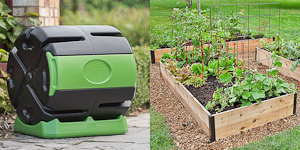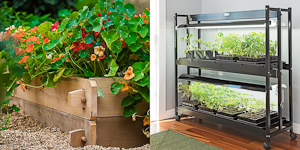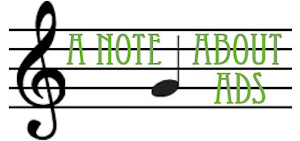- Home
- How to Start Seeds Indoors
- Heirloom Seeds
Heirloom Seeds
Heirloom seeds are finally becoming popular again, for good reason! For example, in heirloom tomatoes you can choose the color, flavor, shape, texture and size you want, and free yourself from the pink rocks they call tomatoes at the grocery store.
Definition of Heirloom Seeds
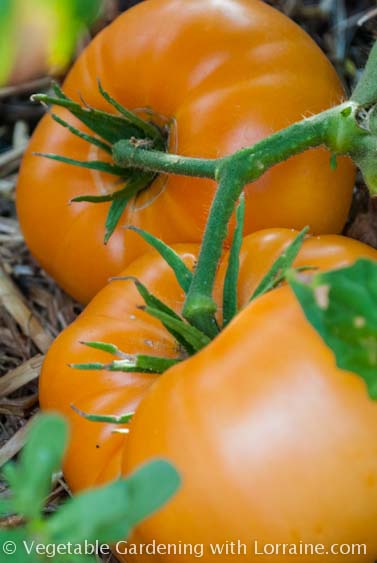 |
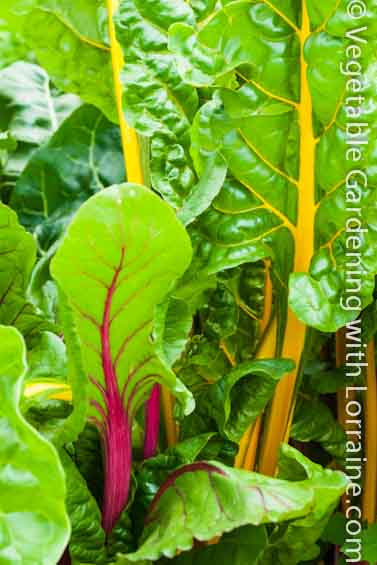 |
To qualify as an heirloom, a seed must be of a plant variety (a “cultivar”) that is genetically stable, meaning that when pollinated within the variety, will produce offspring that have identical characteristics to the parent plant. In addition, to be considered an heirloom, that variety must have been grown and passed down within a family for generations.
Different camps have tried to define heirlooms by the number of years that the variety has been grown unchanged, but there is no general agreement on how many years that should be (it’s usually somewhere between 50 and 100 years).
"Open-pollinated" is the term used when a variety is genetically stable and the seeds come back true to the parents when pollinated by themselves. All heirlooms are open-pollinated, but not all open-pollinated varieties are heirlooms - only those with a 50-100 year family history.
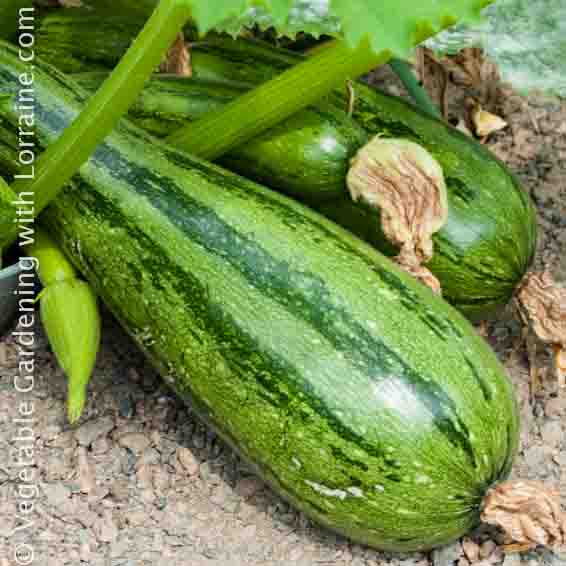 |
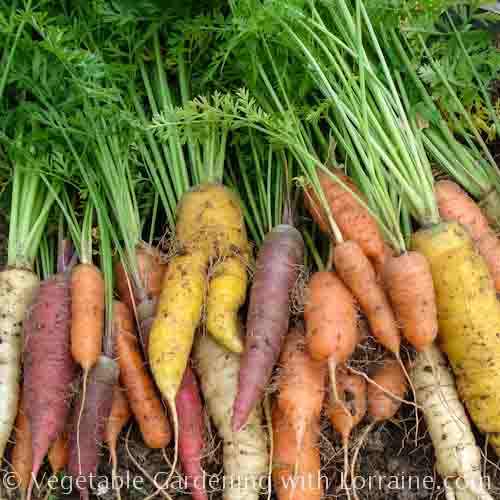 |
Advantages (and Disadvantages) of Heirloom Seeds
Advantages The popularity of heirloom seeds comes in part from the fact that you can save your own seeds, plant them the following year, and be assured that they will grow back with the exact same characteristics as the parent. (Provided they don't cross with other varieties.)
They also offer immense diversity: adaptation to specific climates or soil conditions, huge variations in flavor, size, color, days to harvest, bolt resistance, disease resistance and many other characteristics.
Disadvantages Many heirlooms are highly susceptible to disease. Normal plant breeding (I'm not talking about gmo) has allowed the development of hybrid plants with improved disease resistance. In 2011 all the tomatoes I grew were heirlooms, and I lost my entire tomato crop to fusarium wilt. Many hybrids have amazing resistance to disease.
If you wish to grow heirlooms in your own garden this year (and I highly recommend you do!), go to the seed catalogs page and scroll down the list for the heirloom suppliers. I buy most of my heirlooms from Seed Saver’s Exchange. (And plant one or two good hybrids, too, for "crop insurance"...)
The Difference Between Heirloom, Hybrid, and GMO Seeds
Hybrid Seeds
In contrast to heirloom seeds, most seed companies offer primarily hybrid seeds. Hybrid seeds are a natural cross between two or more different varieties.
First-generation hybrids ("F1 hybrids") are predictable. But if you save the seeds from F1 hybrids and try to grow them the following year, you will get an unpredictable mix of characteristics. They will not be like their parents.
Hybrids are popular because:
- They can be bred for excellent disease resistance
- They can be bred with specific marketing qualities, such as "Super Sweet" corn that stays sweet even when weeks old
- They can be bred for excellent shipping and storing qualities
- Seed companies know you have to come back to them every year to buy seeds
GMO Seeds
GMO seeds are not natural. It is impossible for GMO seeds to occur in nature. They come from a laboratory, where the genetic material of one species is forcibly inserted into the nucleus of the cell of another species, hoping to get some particular characteristic.
Animal, insect or bacterial genes are forced into the cells of other species, in crosses that would be impossible in nature. Goats don't mate with spiders, bacteria doesn't cross with corn, and tomatoes don't get pollinated by fish. But it is done by man, in the lab.
These forced crossing are done, ultimately, for human profit. When we make the plant itself poisonous to bugs (the same plant we eat), the farmer wants the seed. When goats make spider silk, we can get a lot more than we can from spiders. These are actual examples of what's been done. See the GMO Seeds article for more info.
Genetic Diversity, Genetic Politics, and Genetic Ownership
Hybrids are bred from heirlooms. Heirloom seeds hold the genetic diversity necessary for adaptation to climate change, changing soil and water conditions, newly mutating plant diseases, and other, as-yet-unknown changes. Genetic diversity is how nature adapts to changes.
Recognizing the value and importance of genetic diversity, some thirty years ago a handful of people led by a man named Kent Whealy founded an organization called Seed Saver’s Exchange. Over the decades they have collected, grown and preserved thousands of varieties of heirloom seeds from all over the world, and made them available to the public through their catalog. Having many people in many gardens around the world grow heirloom seeds is one way of assuring their preservation.
Because scientists also recognize the critical importance of the genetic diversity held by heirloom seeds, the USDA and other entities around the world store them in seed banks, which are generally cryogenically maintained (with some exceptions - some seeds die if frozen). Since seeds are living things, no seed lasts forever without being given what it needs to grow and reproduce. So seeds in seed banks are occasionally brought out, grown and carefully protected from cross-pollination, and their seeds put back into storage.
Now my intention on this website is to encourage people to joyfully learn how to garden and grow some of their own vegetables, so I am hesitant to delve into negativity and state what comes next, but I feel that out of love and integrity I must mention what is happening to our heirloom seeds, in order to keep you informed.
There is danger developing with respect to the God-given heritage of our heirlooms: it is now perfectly legal to patent a seed, whether you “developed” it or not. The agribusiness/seed company giants are doing just that to our (the world’s people's) heirloom seeds. (There is also a law called the Plant Variety Protection Act, which allows patents to those who first "appreciate" the unique qualities of a plant and clone it.)
The upshot of this is that they can then sell them to back to us, and people can be sued for growing them and saving their seeds without a license. This is not paranoid conspiracy thinking, it is actually happening.
The largest seed companies in the world are Monsanto (now Bayer), Syngenta, and Dupont. Now think about this, they are all chemical companies, aren't they? What are they doing in the seed business? They got into agriculture after World War II, when demand for nitrogen for bombs plummeted and they were in financial straits.
They discovered that nitrogen made great fertilizer. As did phosphorus and potassium. Then they began making pesticides. As bugs became more and more resistant, they made nastier and nastier pesticides.
Then they made herbicides that killed grasses but not crop plants. But corn is a type of grass, so they eventually started manipulating the genes of corn to make it resistant to grass herbicide.
Finally they started manipulating the plants to themselves be poisonous to the bugs. (Yes, the bug eats the corn and dies. The same corn that is then harvested and sold to us to eat.)
Now they are patenting our heirlooms, so they can use the great diversity that they carry as raw material in their hybrid breeding and GMO experiments.
Now think what happens when you patent a living, self-reproducing thing: the creature gets out there in nature, and reproduces with the natural and even wild strains. You can't stop corn pollen from one field from blowing across the road and pollinating the field on the other side.
Farmers are being sued and having their farms shut down for “growing” GMO seeds on their land, even though they didn’t plant them there.
This is all true.
See the movie The Future of Food, made by Deborah Koons Garcia (Gerry Garcia’s widow).
If you're interested you can also Google Kent Whealy’s letter to Seed Saver’s Exchange members about the patenting of heirloom seeds, as companies are now doing at the Svalbard international seed bank.
The Most Powerful Thing You Can Do
The existence, cultivation and propagation of the heirloom seeds of the world is critically important, not only so that we have a diversity of color and flavor on our plates, but because these treasures hold the genes of the future of vegetables on planet Earth.
To end on a positive note, you can grow heirloom crops, of a huge and wondrous variety, right now. In the generations before us, families used to offer heirloom seeds in a special wooden box as a gift to newlyweds, with the understanding that they were offering food and life, in an unbroken tradition.
I think that was a wonderful tradition, and you can start it anew right now in your own vegetable garden. Have fun learning what grows best in your region, and what delights you on your plate. Teach your kids, and when they grow up and get married, give them the seeds.
Help share the skills and spread the joy
of organic, nutrient-dense vegetable gardening, and please...
~ Like us on Facebook ~
Thank you... and have fun in your garden!
Affiliate Disclaimer
This website contains affiliate links to a few quality products I can genuinely recommend. I am here to serve you, not to sell you, and I do not write reviews for income or recommend anything I would not use myself. If you make a purchase using an affiliate link here, I may earn a commission but this will not affect your price. My participation in these programs allows me to earn money that helps support this site. If you have comments, questions or concerns about the affiliate or advertising programs, please Contact Me.Contact Us Page
